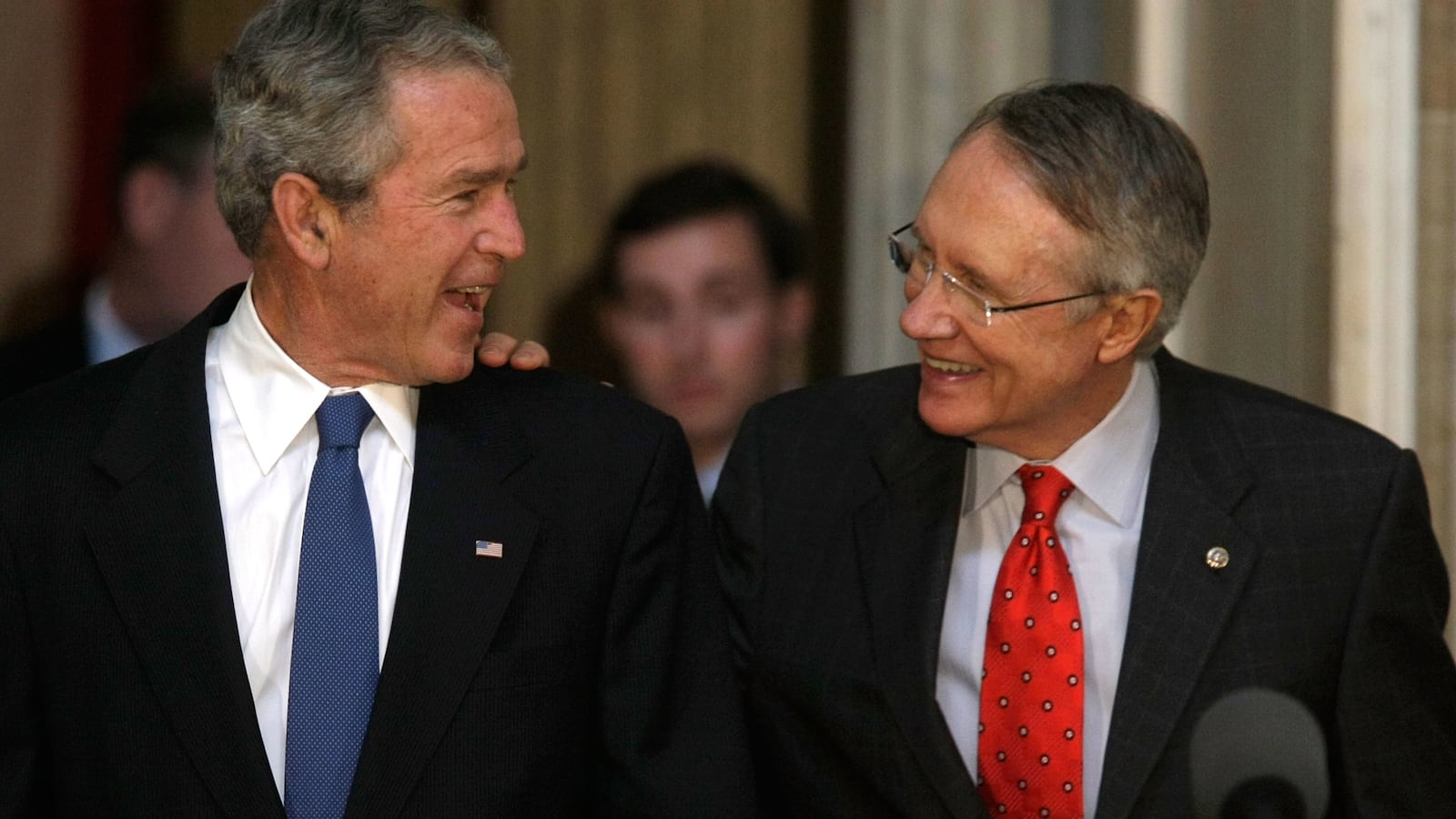Jeff Bernger writes at the Weekly Standard on the origin of our contemporary recess appointment mess: it all traces back to the Swift Boat controversy.
In 2007, President Bush decided to appoint Sam Fox, a self-made billionare, as Ambassador to Belgium (not exactly a senstitive post.) The only problem was that Fox had contributed 50 thousand dollars to "Swift Boat Veterans for Truth," a group which requires little introduction. John Kerry didn't forget that detail, and when Fox was nominated, guess who happened to be chairing the Foreign Relations Committee?
Kerry swiftly torpedoed the nomination, and the Bush White House was advised to - and promptly agreed to - withdraw Fox's nomination. Fox's name was formally withdrawn, and the Senate went into recess. But then the Bush White House did something rather shocking:
The Senate took its spring break the following week, and during its recess President Bush appointed Sam Fox ambassador to Belgium on April 4. Democratic senators went into high dudgeon. “Unfortunately, when this White House can’t win the game, they just change the rules, and America loses,” said Kerry. Senator Barack Obama, already on the presidential campaign trail, said, “It’s disappointing that President Bush would defy the will of Congress by appointing Sam Fox ambassador to Belgium.”
Bush and Senate Democrats ultimately reached an agreement:
The Senate would confirm a number of nominees prior to the August recess in exchange for a promise from the president that he would make no recess appointments during the August break.
But that deal only lasted a year, as Sen. Harry Reid began the use of pro forma sessions to prevent recession appointments. Because the Senate was opening and ending sessions every three days, Bush was prevented the option of a recess appointment.
But the practice of using pro forma sessions stopped in 2009 with Bush's exit from office, and in 2010 President Obama appointed 15 nominees without protest from the Senate Majority Leader. It wasn't until Mitch McConnell prepared to send nominees back to the President that Reid again began the use of pro forma sessions in the fall of 2010.
This has resulted in a legislative mess, a Supreme Court challenge to the practice, and the prospect of a permanently weakened presidency. And, while we're at it, the mess of recess appointments is a significant impetus for substantial filibuster reform.
So, the big question for George Bush and Harry Reid: was it worth it?






